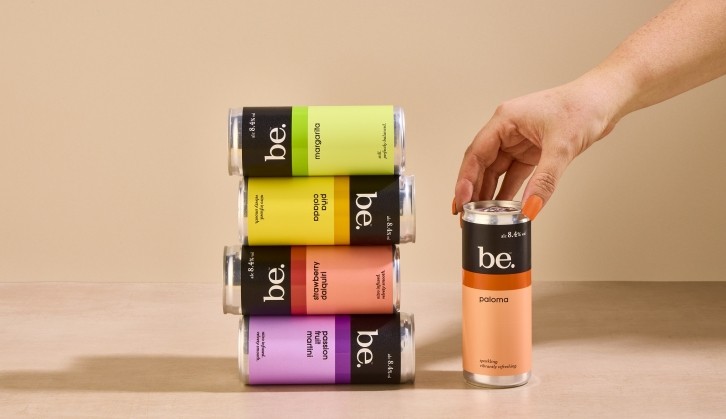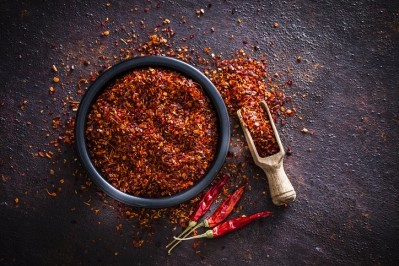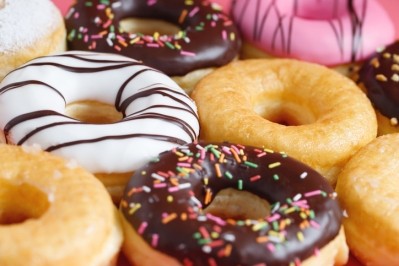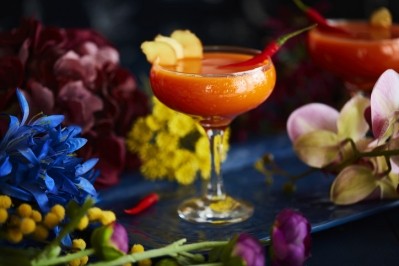Flavors drive canned cocktail purchases

Price is the other major factor: with consumers looking for value and with cost-of-living concerns front-of mind. Other drivers – such as celebrity endorsement and sugar content – play a surprisingly small part in comparison.
That’s according to Global Brands – the company behind the iconic RTD brand VK and a portfolio of other drinks – which collaborated with consumer intelligence platform ProQuo AI to understand purchase decisions in the canned cocktail category.
That category has grown from £4.7m in 2004 to a whopping £94m in 2024, according to Nielsen data.
Taste and flavor
A large majority (77%) of canned cocktail drinkers say taste is the most important factor when choosing and consuming a canned cocktail.
There are four core flavors that drive most of the value and volume in canned cocktails, according to Global Brands.
These are Passion Fruit Martini, Pina Colada, Mojito and Daiquiri.
Why are these so popular?
They’re easy to recognize and easy to drink, and commonly accessible in the off-trade.
A range of flavors also gives consumers a good selection to choose from.
But move beyond the mass market and into premium and super-premium tiers and the picture changes.
“Over the next 12–24 months, we expect to see more growth coming from flavor variants in premium cocktails as consumers continue to look for new and interesting ways to enjoy cocktails,” notes the report.
“Choice and variation give category users a reason to trade up to premium, and give new users a reason to enter the category from the outside to enjoy a unique experience.”
Identifying the flavor clearly on pack is important: it was rated the most important factor to drinkers when it comes to can design.
The margarita is the fastest growing cocktail flavor in the Off Trade, adding £4m to the category in the last 12 months.
Espresso martinis are seeing a bit of a resurgence and have increased by almost £2.5m in the same time-frame.
The Paloma is comparatively new but has already grown to over £1m in retail sales value.
Price: Does a product offer value?
Think canned cocktails are a cheap summer option chosen solely for convenience? Think again. Consumers are more likely to spend money on products that give a premium feel and experience.
With the cost-of-living crisis, brands need to convince consumers that they’re worth their price tag.
“People are cutting back on their alcohol consumption as a way to cut out non-essential costs and to save money," notes the report.
In 1997, Global Brands launched the UK’s iconic RTD brand, VK.
Its portfolio now includes brands such as Hooch, Franklin & Sons, All Shook Up, Shake Baby Shake, be., and Flare.
"Canned cocktails are considered a luxury and a treat. When people commit to spending money, they want to maximise their value either by shopping offers and discounts, or choosing brands they feel will deliver an elevated experience to enhance their enjoyment.
"Attraction becomes a very important dimension in this context: brands that have great looking packaging and promotions, deliver an emotional experience.”
Celebs? Not so much
The addition of a celebrity endorsement appears to have less of an impact than other factors.
Unsurprisingly, younger drinkers (aged 18-30) are more likely to be swayed by celebrity endorsement. But it’s not necessarily a lasting impact.
“Celebrity partnerships are more likely to drive new user acquisition among younger shoppers (42.2%) compared to older shoppers (25.3%)," notes the report. "Celebrities may influence shoppers to try a product, however, across both age groups, those same campaigns lose impact after an initial purchase."
Breaking down 'convenience'
RTDs are commonly championed for their portability and convenience. In the survey, consumers confirmed that's one of the reasons they turn to canned cocktails.
But while their portability might create a strong choice for going out and about, canned cocktails are actually most frequently consumed in an at-home environment.
The convenience factor, then, is less about having a portable beverage to take to a park or out and about and more about having a ready-to-drink beverage at-home. In fact, 33% of consumers believe canned cocktails taste better out of a glass and often serve up their drinks accordingly.
In the on-trade, luxury canned cocktails may hold the key to small businesses which may not be able to employ skilled mixologists.

"We expect to see increased demand for easy to serve, bar-quality canned cocktails from On-Trade outlets such as dark bars, hospitality operators and airlines," says the report.
"Operators such as these are looking for solutions that enable them to serve premium cocktails quickly, efficiently, and consistently, without requiring the specialized skills of a professional mixologist."
Venues who serve canned cocktails can see an 85% profit increase compared to making cocktails from scratch, according to Global Brands' calculations. That's thanks to savings in ingredients, the training and wages needed for staff, and lower wastage.











